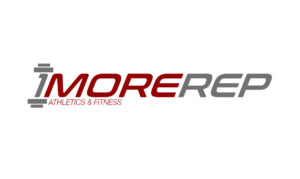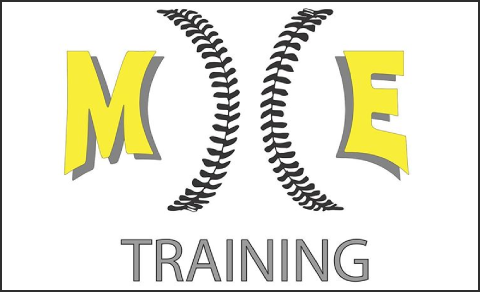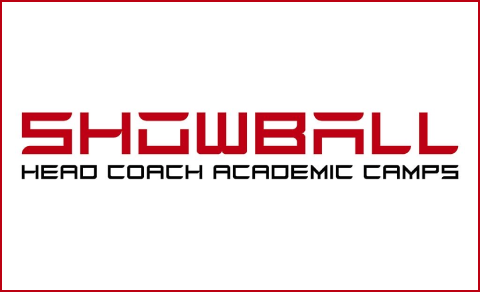When did you initially get into coaching?
I started coaching when I was 17 years old actually. Like many older brothers I wanted to help out with my younger brother Jayke’s local team, which was the Long Island Patriots. I first assisted my father who coached the team. My father instilled a great amount of passion in me, and he is my greatest role model due to his tremendous work ethic and passion for impacting people. The following summer, Ben Brown, who was a part of the Long Island Patriots, asked me to start a team for him to go to Cooperstown. I volunteered to do it, and it was the first time I was the head coach of anything. I went on to continue to do that for a few more summers while I also was hired to coach for the Long Island Looks by George Rainer, NY Nationals by Ricky Caputo and Long Island Prospects by Joe Mongiello. When I was heading into my senior year of college, I was introduced to Jimmy and Bryan Goelz who spoke with me about starting a travel baseball program which later became known as Motus Academy. It was the best thing I could have ever done because I learned so much from the Goelz brothers as well as Chris Rojas who also came on board and many of the other coaches involved. I was also really fortunate to one day meet Lou Petrucci who brought me on staff at Ward Melville and served to be another great mentor and still a great friend. After a few years of running Motus Academy with the Goelz brothers and Chris Rojas, I decided to pursue coaching at the collegiate level where I felt I could better make an impact on someone’s life both on the field and off in preparation for whatever life’s next challenge may be. It was then I went up to University of Maine for three years, then on to UMBC for two years and now this great journey filled with meeting so many great people has led me to George Mason University in Fairfax, VA.
What are some physical attributes you look for in a college baseball player when recruiting them?
We would rather have a baseball player that impacts winning and those around him than a prospect that stands out in a pro-style workout only. The priority is not someone’s metrics in things like exit velocity, 60 yard dash, arm velocity and so on and so forth unless it impacts their ability between the lines. I think we all would take someone that is bigger, stronger, faster and/or with a stronger arm but it has to have an impact in a competitive setting for it to have value for us.
From an offensive standpoint we look for someone who is able to get themselves into scoring position on their own. This means that they have the capability to either hit doubles, steal bases, and/or have feel for reading ball in dirt. In order to get there they have to be able to make good swings decisions first and foremost. The better hitters are more disciplined and are able to be really aggressive to pitches within their approach. We look for guys that have bat speed and athleticism within their swing. We look for guys that are able to repeat their gather, have feel for hit, have little swing and miss and use the field.
When it comes to the catching position we look for guys that can receive from a skillset standpoint. We receive more than we block and we block more than we throw. We look at athleticism behind the plate as well as hip and ankle mobility. When it comes to throwing we look for carry on throws (backspin) and the ability to command the ball accurately consistently. If we are able to put the ball on the bag consistently and efficiently we have done our job when it comes to the run game. It is far easier to shave a couple tenths off a time to home plate than an in-game pop at our level.
From an infield perspective we look for guys that are athletic and able to move well laterally and coming in on the ball. I look for guys that have the ability to throw the ball accurately and have the ability to create hops. We look at actions and the ability to be consistent on the routine play but still being able to harness their athleticism to be a playmaker as well and save runs.
In the outfield we look for guys that are able to track the baseball well, those that make good throwing decisions and get rid of the baseball efficiently. We look for athleticism all around the field but especially in those three positions. On average a D1 team only throws out anywhere from 3-5 runners in a 56-game season from the outfield. So while having a stronger arm is better than having a weaker arm, at our level it is more important to be able to track the ball, get the ball in and out and make good throwing decisions.
On the mound we look for guys that compete, want the baseball and are able to command at least two pitches in the zone. The better hitters are more disciplined as you go up levels so the chase rate goes down especially in hitter ahead and even counts. That is why it is important to be able to command the fastball and the secondary in the zone and not just throwing the secondary for chase only. We look for guys that are athletic movers on the mound that repeat their delivery and maintain direction well. Those are more of the things we prioritize before getting into anything more technical on the dimension to a fastball, spin rates, vertical or horizontal break, etc. We need guys that compete and impact winning by challenging hitters with conviction.
What are some intangible attributes you look for when recruiting a player?
I strongly feel this is more important than the physical attributes. There are just under 300 schools in Division-I baseball and every single one of them is looking for a good player. If they’re doing a good job they’re getting good players. For this reason I am not as bothered when a good player decides to go to another program. Other programs are supposed to get good players. What we focus on and are really passionate about is getting the right players for us. That player has an elite level of work ethic, values impacting those around him and his team’s performance and is someone that wants to be here. It is rare to find those that genuinely want to impact others and winning rather than prioritizing their own ability to showcase themselves. We also look for someone that wants accountability and development. I believe that the best players want to be held accountable. We love on our players a lot and give them a ton of positivity, but we are clear from the recruiting process on that if someone decides to come here we will encourage you in a positive manner and hold you accountable to your very best when you may fall short of your best effort. We also look for a confident performer. The next level challenges all of us to be better. If someone lacks confidence and hunts affirmation at the high school level where they are having success, it is that much more difficult at the next level. More importantly I am strong believer that we need to find someone that wants to be here– that values the education we have and that believes in our program and the direction it is heading. If we have to convince someone to be here or buy someone to be here, we will not be able to convince them every day at lift, practice or games and will not get the most out of them. We need guys that want to be here and those are the ones we get the most out of.
What events are typically the best to attend from your experience ?
We have honestly had a ton of success at our camps. We had 619 high school players on campus this fall for our camps and another 51 this winter and have now committed 9 players during that span. We have run several team camps and prospect camps with teams from all up and down the east coast and players from all over the country. We do a ton on backgrounding every player we find on social media platforms, online, emails, via recommendations or on the road recruiting. We build out a really long list in order to stick to and leverage our values of finding the right people. Those players on that list come from all different backgrounds, play for all different types of travel teams, play travel or legion and come from many different areas as well. I really believe that if someone focuses on their developmental process and grows enough as a player and person the recruiting process will handle itself with just a little bit of effort to post video online on twitter or send emails. We will go to some larger national events as well as some more regionalized ones throughout the summer and fall. We are really fortunate to have the recruiting budget and support that we have to be able to travel locally to events in the Mid-Atlantic and down to Florida and Georgia, but also be able to head to events at times out of region. We will take the right player and person if he is from down the street in Northern Virginia or several states away if they are willing to do what it takes to impact those around them.
I also think it is imporant to note that we also recruit heavily at the junior college level and transfers as well. Our starting rotation on the mound last year featured two junior college transfers and our lineup featured four junior college transfers. Junior college can be a great opportunity for development and growth and is another place we look for the right people.
How important are grades for student-athletes ?









